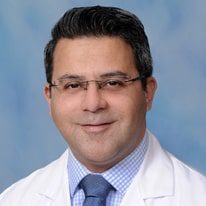
In the U.S., stroke is the leading cause of serious long-term disability. An ischemic stroke obstructs a blood vessel from circulating blood supply inside of the brain and without treatment can lead to impairment. The good news is ischemic strokes are largely treatable if treated at the hospital in the right amount of time. Stroke care is a team effort starting with the stroke victim, loved one or citizen responding to the incident, calling 911 immediately at the onset of stroke symptoms. Principally, by calling 911, a wide-range of resources is available today.
Why call 911 when someone is suffering a stroke instead of driving or getting a ride to an urgent care or the hospital emergency room?
Trained emergency medical services (EMS) personnel know the fastest path to get patients the care they need at a Thrombectomy-Capable Stroke Center (TSC), Comprehensive Stroke Center or Primary Stroke Center. Remember, time is brain when it comes to stroke care. Every minute as many as 1.9 million brain neurons can die during a large vessel ischemic stroke. Loss of brain neurons can result in impairment, disability and in some cases death. Skilled EMS teams can bypass hospital registration or emergency room waiting rooms much faster than walk-ins.
Treatment Options –
An evaluation by the stroke team is conducted and the type of stroke is determined. Treatment options are then evaluated. One treatment option involves administering tissue plasminogen activator or tPA, a clot dissolver, intravenously. Another treatment option may be performed by an interventional neurologist through a specialized, minimally-invasive mechanical endovascular thrombectomy or EVT. This allows access to the cerebral vessels via catheter where the blood clot can be removed thus opening blodd flow to the brain.
Evolution of stroke care and awareness –
Stroke care is rapidly evolving by leaps and bounds due to the combination of minimally invasive treatment options and community awareness. The amount of time it takes to receive treatment is paramount during the onset of stroke. Know the FAST acronym, inform friends and family of the importance of calling 911 and stay educated about stroke care options in your community today.
Dr. Sonal Mehta | Dr. Sonal Mehta is an interventional neurologist specializing in vascular neurology, endovascular surgical neuroradiology/neurointervention, neurocritical care and neurology at North Shore Medical Center.





